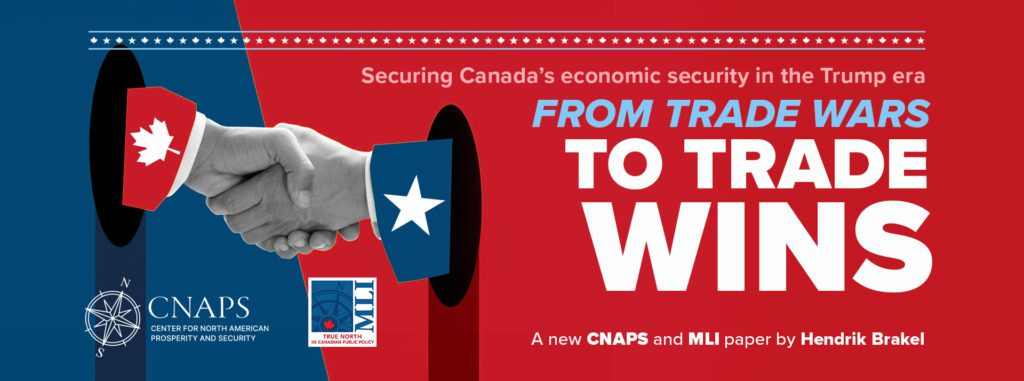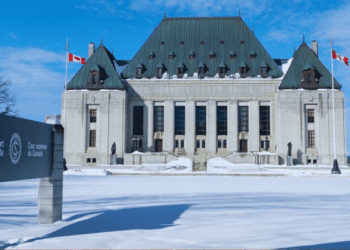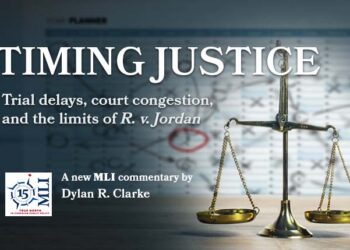This article originally appeared in The Hub.
By Michael Barutciski, January 29, 2025
In light of the Trump administration’s early moves to deport migrants without legal status in the U.S., there’s been heightened debate here in Canada about how we may (or may not) be positioned to handle a surge of claimants seeking refuge. Beyond the logistical capacity issues of handling high volumes of cases at our border, there are outstanding questions about Canada’s legal obligations to claimants and what, if any, policy and legal scope we have to manage the potential influx. The truth is it is greater than is often understood.
A key source of the confusion is that for years many in Canada have held a false assumption about the legal constraints imposed on our asylum procedures through a landmark Supreme Court decision in 1985, Singh v. Canada. The Globe and Mail’s editorial board recently repeated this mistake, asserting that Canada’s top court decided the Charter guarantees asylum seekers the right to a hearing as soon as they set foot in the country. This misreading of Singh has a real effect on our immigration predicament.
The Supreme Court did establish an important general rule in Singh: all persons who arrive at the border are covered by the Charter, regardless of their immigration status. Yet establishing that the Charter applies is not the same as interpreting the content of these Charter rights in various contexts.
In terms of refugee status determination procedures, the Supreme Court noted in Singh that the claimants, all Sikhs, were going to be sent by Canadian authorities back to their home country. For six of the seven claimants, this meant being returned to India, a country the Court considered dangerous for them given the violent internal tensions at the time. (The other claimant was to be returned to Guyana.)
However, the Supreme Court never generalized by saying that all claimants always have a right to a hearing. That is the exaggerated interpretation encouraged for years by activists and wishful-thinking academics. If claimants come to Canada via a safe third country, such as the U.S., then they can be returned to that country. This is the basic principle at the heart of the Safe Third Country Agreement (STCA), which the Court accepted last year when it refused to declare the agreement unconstitutional (as activists and academics have been demanding for years).
In other words, dealing with asylum claimants coming from the U.S. is a different situation than the one addressed in Singh and the legal constraints are not the same. This nuance is recognized in both the 1951 Refugee Convention and Canadian legislation. The convention does not even mention anything about hearings. Its most basic protection is the principle of “non-refoulement,” which stipulates that refugees cannot be returned to a country where their “life of freedom would be threatened.” It allows claimants to be returned to safe countries, which is why the adoption of the STCA was possible in the first place.
Section 101 of the Immigration and Refugee Protection Act specifically includes eligibility clauses that should suggest caution to anyone who believes automatic access to a hearing is part of Canada’s system. There is an initial determination as to whether the migrant is eligible to make a claim, including various security-related grounds of inadmissibility.
Moreover, there is also a clause rendering claimants ineligible when they come “directly or indirectly to Canada from a country designated by the regulations.” This is the legislative provision that enables return to the U.S. Even a cursory reading of the act should make clear that an automatic right to a refugee hearing was never intended or established by Parliament.
Despite these legal provisions, the Liberals have spent years reinforcing the confusion regarding Singh, constantly asserting that asylum seekers trying to enter “irregularly” at Roxham Road had the right to a hearing. When the government’s inaction regarding the illegal crossings led to record numbers of asylum claimants and public anxiety over the lack of border control, the government eventually negotiated an amendment to the STCA that essentially closed Roxham Road. Nobody seemed to notice that the supposed right to a hearing in Canada disappeared.
It is ironic that Prime Minister Trudeau recently acknowledged in the French version of a YouTube video that asylum seekers at Roxham Road were actually abusing the system. This incoherent and unserious approach was again revealed when Immigration Minister Marc Miller repeated the false argument about a supposed unqualified right to a hearing during a press conference explaining the reimposition of visas on Mexican nationals (who he claimed were abusing the asylum system).
After many years of lax asylum policies, followed more recently by continual controversies, there now appears to be an attempt to debate the country’s genuine asylum dilemmas with the Globe’s editorial board suggesting “new thinking is needed.” Most reasonable Canadians realize that tightening the current asylum system in a manner that treats claimants fairly is sufficiently challenging; we do not need to make it even more difficult by inventing legal constraints.
Singh established that asylum seekers in Canada who risk being returned to a dangerous country benefit from a right to a hearing if they claim protection. The corollary is equally important if we are to explore creative solutions to Canada’s asylum problems: there cannot be a Charter violation if asylum seekers are sent to a safe country. Although it will disappoint activists, the future of a sustainable asylum system will inevitably involve extraterritorial procedures and an extension of the safe third-country idea. We need to properly grasp basic legal constraints to make sure these procedures are as fair and humane as possible.







